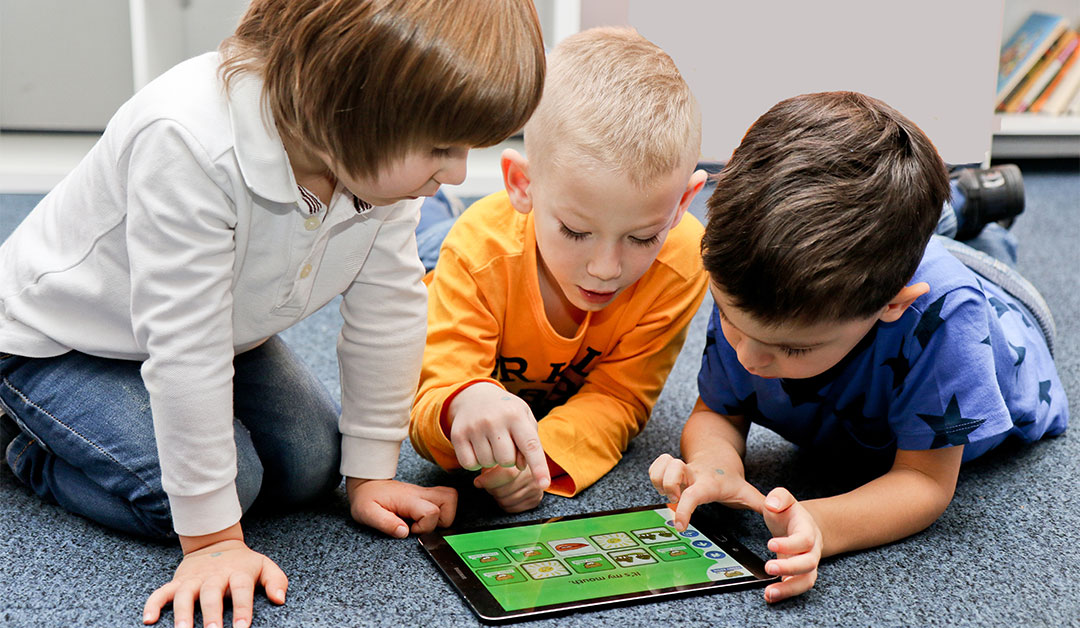Online courses for… pre-schoolers? Is it even possible?
When in March it turned out that teaching in the classroom or via the internet is no longer a matter of a personal decision, and that we are all subject to sanitary restrictions, many language schools panicked. Teenagers maybe, but English for pre-schoolers online?
THIS WILL NEVER WORK
Because in Edu Bears we operate on the basis of the principle „impossible wishes are granted right away, for miracles we take two or three working days”, in the Methodology Department discussions started about the what and the how of the continuity of classes. What should English classes online for kids look like? Which of the good practices are to be kept, and which ones modified or rejected altogether? Will the online classes for the youngest students have the same educational value?
I would like to say that we sat down, discussed the situation thoroughly based on our previous experience, and took some decisions which turned out to be right. Unfortunately, this would not be the truth, mostly because none of us had had any experience regarding teaching 2 to 7 year-olds online. So we just threw ourselves into the deep end and after every step met with our team to discuss what works and what doesn’t.
FILM-MAKING FOR DUMMIES
From the beginning we felt that it is good to have a recorded lesson which the teacher can send to the students, and which can be watched at a convenient time. Not every household has a strong internet connection, a laptop for everyone and the right conditions for the child to work with the teacher. A video lesson is a good method of introducing new elements, can be replayed many times, which allows for working at your own pace. So with eagerness and enthusiasm we started recording our first video lessons.
EXPECTATIONS VS. REALITY
After eight hours and a few panic attacks we had one lesson each, before editing and with technical problems such as sound shifting from the picture or volume going up and down for no apparent reason. None of us had expected what a workload such a lesson is. How easy it is under pressure to say future instead of past. How difficult it is to decide about the pace and course of the lesson when there is no feedback from the kids. You talk to the camera, the camera doesn’t talk back, and the voices in your head go Slower, they can’t keep up! and Faster, they’re bored! at the same time. A decision which is made in the classroom based on what you can see, here has to be taken arbitrarily .
So we quickly came to the conclusion that teaching kids in the „talking to the brick wall” mode does not meet our high expectations, and the video lessons have to be supplemented with online lessons in real time.
With school kids it was a piece of cake, school teachers had already paved the way for us. But what about those pre-schoolers? We needed a fairly big control group sample, so apart from drawing conclusions from our own classes, we called everyone we know, everyone brave enough to make an attempt at teaching the youngest ones, even those who are only two or three years old, online. As usual, they exceeded all our expectations and sent us some recordings, stressing strongly that they are also completely in the dark and are just observing what works and what doesn’t. We watched, took notes, discussed in teams and tried things out on our own students. We observed what materials and games could do the trick. And in a few weeks we drew up quite a nice list of dos and don’ts for working online with children.
ENGLISH FOR CHILDREN ONLINE? WE’VE GOT IT!
At the same time, we tried out many tools, both for recording video lessons and teaching online classes, and finally found those which meet our requirements. With practice, we could record several lessons in one day, knowing that whatever the kids don’t catch in the recording, will be explained by the teacher when they meet online. We know that the ideal model of online teaching for kids combines video and online lessons. In the former, material is introduced, in the latter– activated and practised. We based our actions on feedback, experience and nice words flowing in from the very beginning. We learned a lot about teaching English to kids online, and about ourselves. Thanks to this we now feel that if there is another wave of the pandemic, we will make it through thanks to the experience we gained, ideas for activities we gathered, a written list of good practices and reliable tools we have. We are not scared anymore.
Bring it on.
The author of the article is Sonja Górniak – a graduate of Spanish Philology at the University of Warsaw with a Proficiency Diploma from the University of Cambridge. She has been teaching English and Spanish for over twenty years. Currently, she is also a methodology consultant in Edu Bears and a teacher trainer.
Learn more about the Teddy Eddie method HERE
Visit our local websites: Teddy Eddie CZ and Teddy Eddie SK

